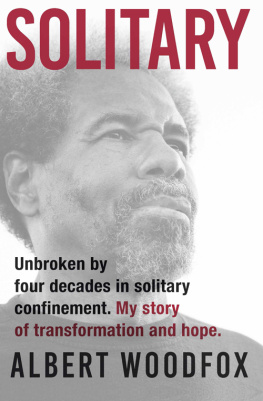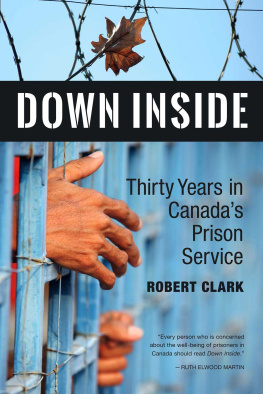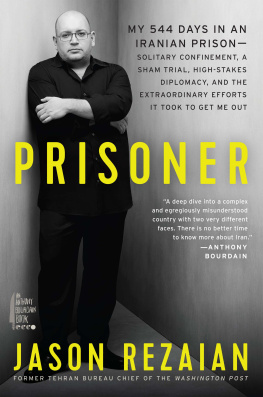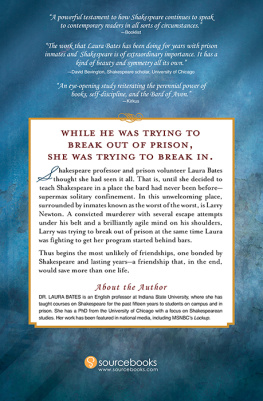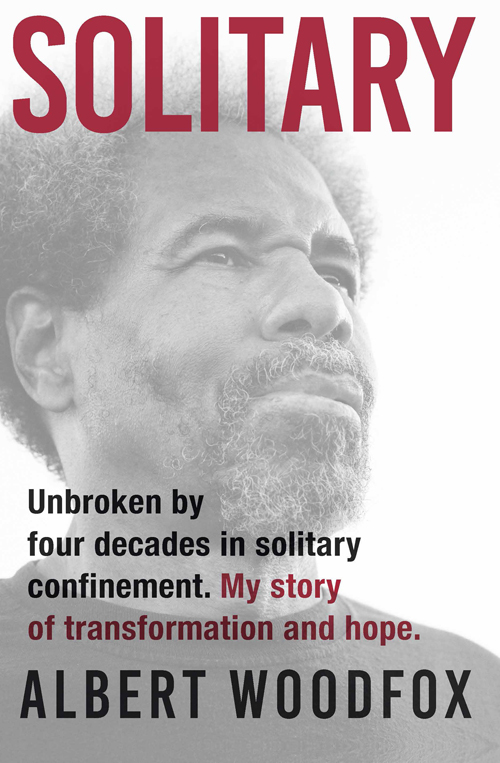SOLITARY
Unbroken by four decades in solitary confinement. My story of transformation and hope.
ALBERT WOODFOX
with Leslie George

Copyright 2019 by Albert Woodfox
Cover design by Becca Fox Design
Cover photograph Mark Hartman
All rights reserved. No part of this book may be reproduced in any form or by any electronic or mechanical means, including information storage and retrieval systems, without permission in writing from the publisher, except by a reviewer, who may quote brief passages in a review. Scanning, uploading, and electronic distribution of this book or the facilitation of such without the permission of the publisher is prohibited. Please purchase only authorized electronic editions, and do not participate in or encourage electronic piracy of copyrighted materials. Your support of the authors rights is appreciated. Any member of educational institutions wishing to photocopy part or all of the work for classroom use, or anthology, should send inquiries to Grove Atlantic, 154 West 14th Street, New York, NY 10011 or permissions@groveatlantic.com.
FIRST EDITION
Printed in the United States of America
First Grove Atlantic hardcover edition: March 2019
Designed by Norman E. Tuttle of Alpha Design & Composition
This book was set in 12-point Adobe Caslon Pro by
Alpha Design & Composition of Pittsfield, NH.
Library of Congress Cataloging-in-Publication data is available for this title.
ISBN 978-0-8021-2908-6
eISBN 978-0-8021-4690-8
Grove Press
an imprint of Grove Atlantic
154 West 14th Street
New York, NY 10011
Distributed by Publishers Group West
groveatlantic.com
19 20 21 22 10 9 8 7 6 5 4 3 2 1
It has been my experience that because of institutional and individual racism, African Americans are born socially dead and spend the rest of their lives fighting to live.
Echoes
Echoes of wisdom I often hear,
a mothers strength softly in my ears.
Echoes of womanhood shining so bright,
echoes of a mother within darkest night.
Echoes of wisdoms on my mothers lips, too young to
understand it was in a gentle kiss.
Echoes of love and echoes of fear
Arrogance of manhood wouldnt let me hear,
Echoes of heartache I still hold close
As I mourn the loss of my one true hero.
Echoes from a mothers womb,
heartbeats held so dear,
life begins with my first tears.
Echoes of footsteps taken in the past,
echoes of manhood standing in a looking glass.
Echoes of motherhood gentle and near,
echoes of a lost mother I will always hear.
Albert Woodfox, 1995
February 19, 2016
I woke in the dark. Everything I owned fit into two plastic garbage bags in the corner of my cell. When are these folks gonna let you out, my mom used to ask me. Today, Mama, I thought. The first thing Id do is go to her grave. For years Id lived with the burden of not saying good-bye to her. That was a heavy weight Id been carrying.
I rose and made my bed, swept and mopped the floor. I took off my sweatpants and folded them, placing them in one of the bags. I put on an orange prison jumpsuit required for my court appearance that morning. A friend had given me street clothes to wear, for later. I laid them out on my bed.
Many people wrote to me in prison over the years, asking me how I survived four decades in a single cell, locked down 23 hours a day. I turned my cell into a university, I wrote to them, a hall of debate, a law school. By taking a stand and not backing down, I told them. I believed in humanity, I said. I loved myself. The hopelessness, the claustrophobia, the brutality, the fear, I didnt say. I looked out the window. A news van was parked down the road outside the jail, headlights still on, though it was getting light now. Ill be able to go anywhere. To see the night sky. I sat back on my bunk and waited.
I was born in the Negro wing of Charity Hospital in New Orleans, the day after Mardi Gras, February 19, 1947. My mom, Ruby Edwards, was 17. My father was gone. He left her, she told me, because she was from the wrong side of the tracks. We lived in New Orleans until I was five and my mom fell in love with a man named James B. Mable, a chef in the U.S. Navy. He was the first and only man I ever called Daddy. They got married and had four more children, a girl and three boys.
We moved six or seven times to different naval bases during those years. Daddys job was to feed the crew of whatever ship he was assigned to. He used to take me onto the ships on weekends when Navy personnel were allowed to bring family. I remember walking to the edge of an aircraft carrier to see the water and he grabbed me by the back of my shirt so I wouldnt be blown away by strong winds.
I was a rebellious child. When I was seven or eight, I challenged my mom to a wrestling match. I can beat you, I told her. If I win you have to wear a dress all day, she said. It was the worst punishment I could think of but I agreed. She pinned me in a few seconds. I dont know where she got the dress but I wore it. At least I was keeping my word, she said. A man aint nothing without his word, she told me. I heard that my whole childhood.
For a while my mom was my world. Proud, determined, and beautiful, she took care of us. She couldnt read or write but she could add and subtract and was good with money; she could squeeze a penny until it screamed. Growing up in the Jim Crow South she had a lot of practice surviving on very little. When Daddy was on leave we stayed at his parents small farm where he had grown up in La Grange, North Carolina. There, my grandparents grew watermelons, cabbage, corn, tobacco, and sweet potatoes. Behind the house was a chicken coop and farther back a forest where we picked wild strawberries. My grandmother loved to fish but was afraid of boats. I was the only one she trusted to row her out into the river, which, my mom being from Louisiana, we called a bayou.
My grandmother showed me how to clean and cook the fish we caught. She taught me how to farm. I fed the chickens and worked in the fields. I learned to drive a team of mules at a very early age. When we cropped tobacca I drove a slender buggy led by a mule that fit between rows of tobacco. The sides of the buggy were made of cut-up burlap sacks, nailed to posts that stuck up from each corner of the wagon. The women in the field broke off the leaves and laid them down flat in the buggy. When the buggy was full I drove it to the curing barn where women tied and hung the tobacco on sticks that were then placed inside the barn on racks. Once the barn was full the heat was turned on and the tobacco would be cured before being shipped and sold to tobacco factories. When I was nine or ten Id hitchhike back and forth to a job at a tobacco factory in Winston-Salem, 170 miles each way. Sometimes the drivers would make conversation, other times they wouldnt. My job was to help roll the tobacco barrels to a scale. A lot of kids my age worked there.
When I was 11, everything changed. Daddy was forced by the Navy to retire after 25 years and we moved to La Grange full-time. He went from being a master chief petty officer, the highest noncommissioned rank you can achieve in the Navy, to being a black man living on a farm in North Carolina. Without the responsibility and respect he was given in the Navy, he lost his self-esteem. He started drinking and took his frustration and rage out on my mom. Daddy never hit me or my brothers or sister. He beat my mom. When he hit my mom, she screamed and tried to fight back, but she was a small woman. He overpowered her with his size and strength. We never knew when he was going to explode in anger and bitterness. Nothing warned us in advance how he would react on any given day so we lived in constant confusion and fear. One time he beat my mom so badly his sisters came around and told her they were afraid for her life. If she didnt leave, they said, he might kill her. My mom didnt want to go but some part of her knew if she stayed with Daddy she was in danger. Sooner or later the violence he used against her might be used against her children. She made a secret plan with Daddys sisters to take us kids and run away. Because of her limited education and experience the only place she felt safe was in New Orleans, where she was born and raised. So, New Orleans was her destination.

